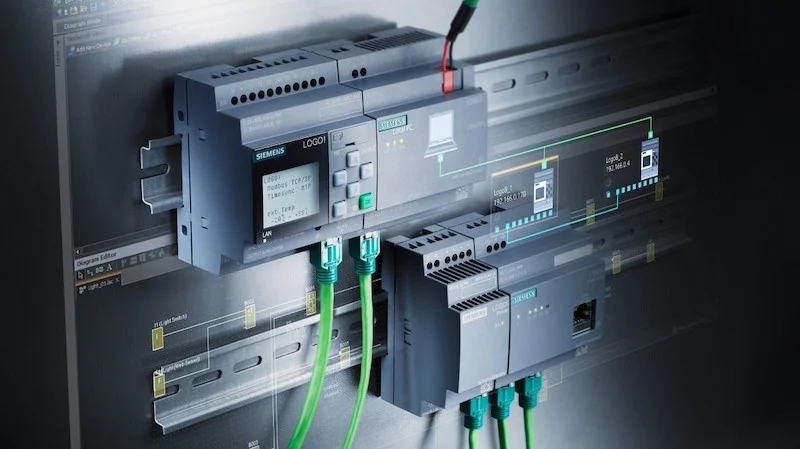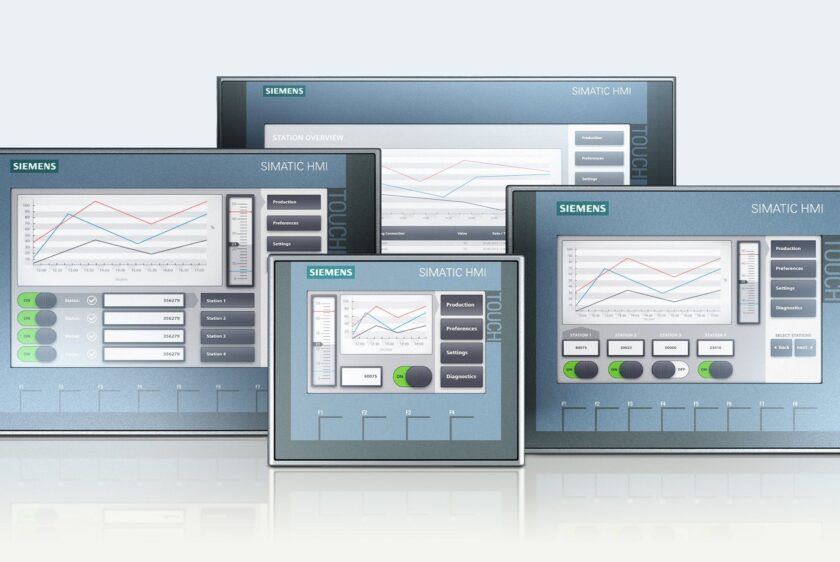- +91 8291375637
- info@wavetechs.com


What is a PLC?
PLC stands for Programmable Logic Controller. It is a specialized computerized device used in industries to control and automate various processes. PLCs are commonly used in manufacturing plants, power stations, water treatment facilities, and other industrial settings. They are designed to monitor inputs from sensors, process data, and control outputs to perform specific tasks. PLCs can be programmed and reprogrammed to adapt to changing production requirements, making them highly flexible and efficient. They play a crucial role in automating and optimizing industrial processes.
Applications of PLCs.
In terms of applications, PLCs are used in a wide range of industries. In manufacturing, they are used to control assembly lines, monitor production rates, and ensure the quality of products. In the energy sector, PLCs are used to control power generation and distribution systems, as well as monitor energy consumption. PLCs are also used in transportation systems, such as traffic control and railway signaling.
One of the advantages of using PLCs is their flexibility. They can be easily reprogrammed and adapted to different processes and requirements, which makes them highly versatile. Additionally, PLCs provide real-time monitoring and diagnostics, allowing operators to quickly identify and resolve issues.
Application of PLC in the electrical control panel industry.

In the electrical control panel industry, PLCs are used to monitor and control various electrical devices and equipment. They help manage power distribution, regulate voltage levels, and ensure the safety and efficiency of electrical systems.
One important application of PLCs in control panels is motor control. PLCs can control the starting, stopping, and speed regulation of motors, ensuring smooth operation and preventing any damage or overloads. They can also monitor motor performance, detect faults or abnormalities, and provide real-time feedback to operators.
PLCs are also used in electrical control panels for monitoring and controlling electrical circuits. They can monitor parameters such as voltage, current, temperature, humidity, pressure, etc., and take appropriate actions based on predefined conditions or user-defined logic. This helps protect the electrical system from faults, overloads, or short circuits.

Another application of PLCs in control panels is in the field of human-machine interface (HMI). PLCs can be connected to touchscreens or other user interfaces, allowing operators to interact with the control panel and monitor the status of the electrical system. This improves the ease of operation and enhances the overall control and monitoring capabilities.
Industrial Automation
In a manufacturing plant, PLCs are used in the control panels to automate various processes. For example, let’s consider a bottling plant. The PLCs in the control panel are programmed to control the flow of bottles, monitor the filling process, manage the conveyor belts, and coordinate with other equipment such as capping machines and labeling machines. The PLCs ensure precise control, synchronization, and fault detection, resulting in efficient and error-free bottling operations.
Energy Management
In a commercial building, PLCs are used in the electrical control panels to optimize energy consumption. The PLCs monitor the electrical loads throughout the building, including lighting, HVAC systems, and other equipment. Based on predefined algorithms and user-defined settings, the PLCs adjust the power distribution, regulate voltage levels, and control the operation of energy-consuming devices. This helps in reducing energy waste, optimizing energy usage, and lowering operational costs.
Advantages of using PLCs.
Using PLCs (Programmable Logic Controllers) in various industries offers several benefits. Here are some of the key advantages:
These are just a few of the many benefits of using PLCs in various industries. They provide flexibility, reliability, centralized control, real-time monitoring, safety, and cost-effectiveness. PLCs have revolutionized industrial automation and continue to play a crucial role in enhancing productivity and efficiency.
Let’s discuss your needs and applications to design a control panel for your requirements.
Ismail
hi arif sir